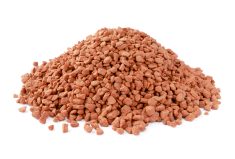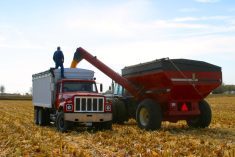Agricultural waste recycler Cleanfarms is on its way to becoming a permanent, industry-funded program in Manitoba.
This will likely mean more opportunities for producers to recycle grain bags, baler twine and other plastics. It will also mean paying for it.
On November 30, Cleanfarms released a draft of its Manitoba Agriculture Plastics Plan (MAPP) and asked for producers, ag groups, retailers and other potential participants to give feedback. It will continue to accept feedback until January 12.
Read Also

VIDEO: Manitoba’s Past Lane – Jan. 31
Manitoba, 1946 — Post-war rations for both people and cows: The latest look back at over a century of the Manitoba Co-operator
Feedback will be incorporated into the plan, which will then be sent to Manitoba Conservation and Climate for approval, the organization said in a pre-Christmas news release.
Cleanfarms collects and recycles ag plastics across the Prairie provinces. Since 2013 it has operated on a pilot (provincially funded) basis in Manitoba with 37 collection sites, the draft MAPP says. In 2018, at the province’s behest, it began consultations on how to transition to a permanent, industry-funded model.
If approved as written, Cleanfarms’ plan would see a permanent program begin in April to collect grain storage bags and baler twine. These items were also gathered in the pilot program.
As market demand allows, a second phase would see silage film and bale wrap added to the list of collected items (this is listed as “TBD” in the MAPP).
Similar to under the pilot, producers would be responsible to roll grain bags and bag baler twine and deliver these to collection sites (pilot locations were mainly at municipal landfills).
“There is no fee for dropping off grain bags or baler twine that is prepared properly,” the MAPP says.
However, the program (as planned in the draft) will be “fully financed through an Environmental Handling Fee (EHF) collected and remitted to Cleanfarms by first sellers of designated ag plastics,” the MAPP says.
The fee will be determined by dividing total program costs (minus recycling revenue) by total weight of products distributed. Cleanfarms estimates the fee for grain bags will be $0.25 per kg and $0.33 for baler twine.
“If the plan is approved, we will work with stewards and retailers to determine a per-item EHF based on commonly sold sizes,” said Barbara McConnell, media and communications consultant with Cleanfarms.
“Under the draft plan, the (environmental handling fee) is mandatory, so all producers who choose to buy twine and grain bags, will pay the EHF to help manage the used grain bags and twine at end of life,” she said.
Most producers aren’t thrilled about mandatory fees on their plastic, but understood the need to support a recycling program, the MAPP said. This is based on a survey Cleanfarms did in 2019 with 355 crop and livestock farmers.
Fifty-eight per cent opposed paying the environmental handling fee. Fifty-three per cent said they’d be OK with paying the fee if the program is easy to use and accessible.
Just 24 per cent of producers who use twine, bale or silage wrap and grain bags said they were aware of the pilot project (despite being in 27 locations spread across agro-Manitoba).
Seventy-seven per cent of the same group said they were likely to participate if a collection site was in their area. Eighty-two per cent of the group said they are supportive of a province-wide recycling program for these items (49 per cent were “very supportive”).
Cleanfarms said it will focus promotion efforts on educating farmers about the environmental handling fee. It will also work on educating producers, retailers and collection site stewards on the program.
Manitoba will follow Saskatchewan’s program-funding model, which compensates collection sites for annual capital costs and also pays them based on the volume of materials collected. Cleanfarms estimated the incentive at $55 per tonne.
Cleanfarms said it plans to submit the amended MAPP to the province by January 30 and hopes to receive approval by the end of March.
















